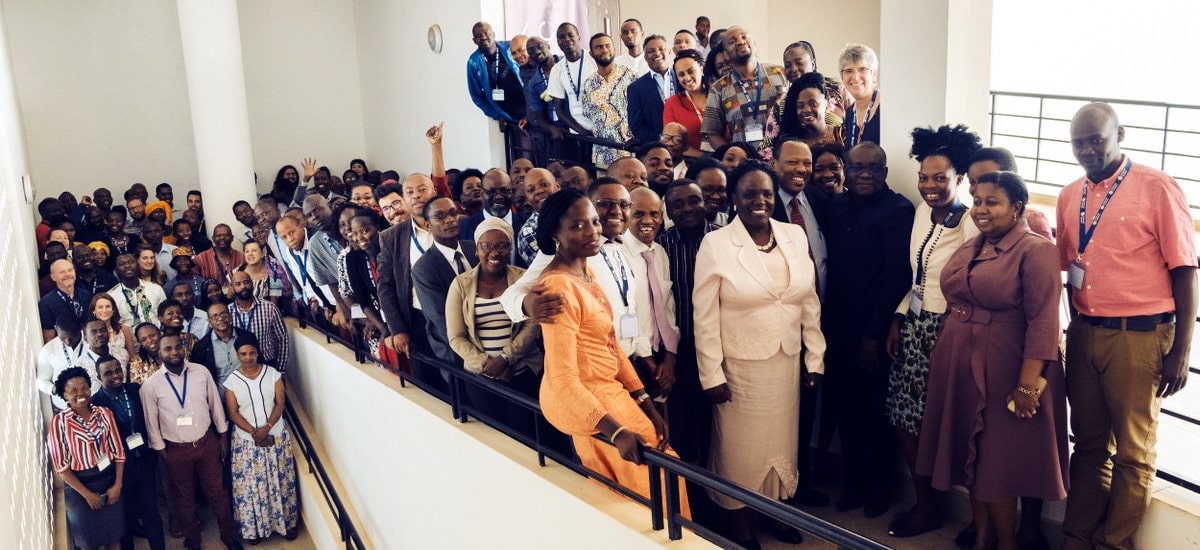The 4th Summit on Community Networks in Africa took place in Dodoma, Tanzania from 28 October to 2 November 2019 in partnership with the Association for Progressive Communications (APC) and hosted by the University of Dodoma. The format consisted of two days of valuable training sessions on defining the community network (CN) movement in Africa, the importance of exclusivity and communications in building CNs, and strategies for sustainability cooperative models among others. The next two days were dedicated to plenary sessions, which focused on discussions to promote the creation and growth of community networks, increase collaboration between CN operators in the region, and improve their business skills. The Summit concluded with a two-day site visit to the Kondoa Community Network for more hands-on technical learning and sharing of best practices.
This year, the Summit received 134 participants from 18 countries globally: Argentina, Cameroon, Canada, Democratic Republic of the Congo, France, Germany, Ethiopia, Kenya, Liberia, Malawi, Namibia, Nigeria, South Africa, Spain, Tanzania, Uganda, the U.K., and the U.S. Of these 36 participants were women and 77 participants were from Tanzania. The participation of women was notable – and important in addressing gender gaps related to access in particular.
Community Networks provide a sustainable solution to address connectivity gaps in urban, remote, and rural underserved areas around the world. In Africa, where these gaps are more evident, a recent survey identified 37 community network initiatives in 12 African countries, of which 25 are considered active. We were happy to note that there were over 20 CNs represented.
The overall spirit of dedication, passion, and interest of the participants was fundamental in achieving the main objective of the Summit, which was to promote the creation and growth of community networks, increase collaboration between CN operators in the region, and provide an opportunity for them to engage with other stakeholders including policymakers and regulators.
National policy and regulation play an essential role in creating an environment for community networks to emerge and grow. We were pleased to note that the meeting of the African Union Member States Ministers in Charge of Communication and Information and Communication Technology (CICT) and Postal Services, held in Sharm El-Sheikh from 22-26 October 2019, recognized the need for new strategies and pilot projects to provide basic infrastructure and services in rural and remote areas that include indigenous community networks. This is an important step toward creating an enabling environment, and we look forward to working with the African Union member states countries to develop guidelines towards this new approach to connecting the unconnected.
The Summit was honored by Tanzania’s Minister for Education, Science, Technology and Vocational Training, Professor Joyce Ndalichako, and by Tanzania’s Minister for Works, Transport, and Communications, Isack Kamwelwe. They attended the opening and closing ceremonies respectively along with other government officials, representatives, from the University of Dodoma, and local media.
Last but not least, the Summit was also an opportunity to meet with the Internet Society’s Tanzania Chapter and local individual members and hold productive discussions around the projects supported by the Internet Society, including community networks.
The Internet is for everyone. Learn more about community networks and join the global movement to help close the digital divide!
Read the wrap up blog post published on Tanzania Community Networks Alliance (tzCNA) website, reported by Bonface Witaba (ICANN Fellow) and Matogoro Jabhera (Mozilla Fellow, 2019).
Image: The power of women in tech at 4th Summit on Community Networks in Africa ©Nyani Quarmyne/Panos Pictures

